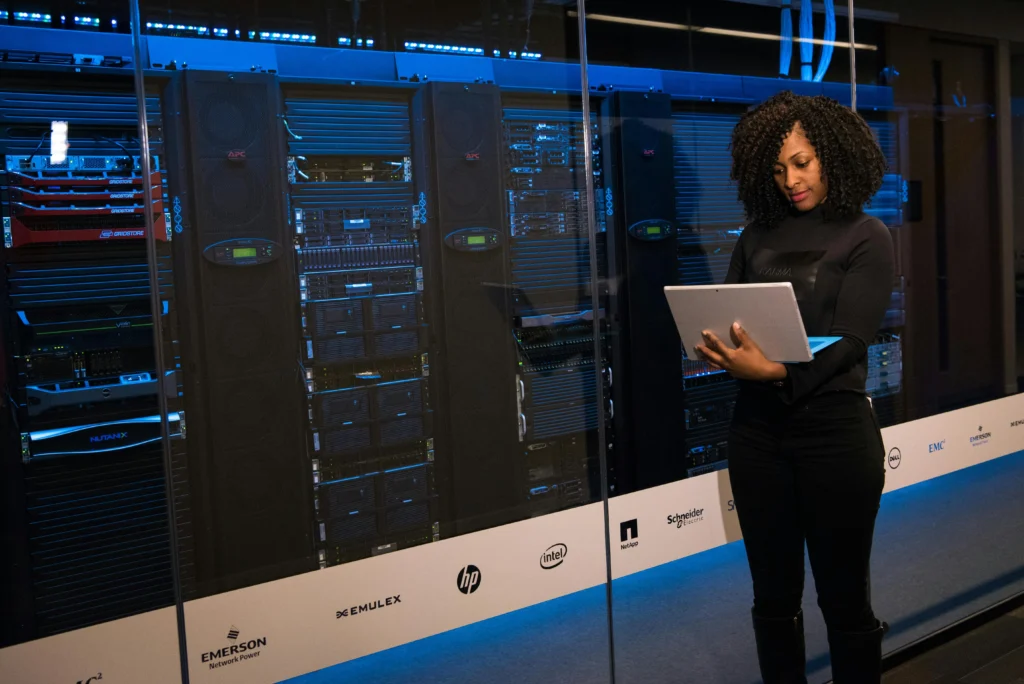
Artificial Intelligence (AI) has become one of the most transformative technologies of the 21st century. While AI once felt like science fiction, today it’s quietly powering many aspects of our everyday lives—from how we shop and communicate to how we drive and make decisions.
In this article, we’ll explore what AI really is, how it works, and where you’re likely already encountering it—often without even realizing it.
What Is Artificial Intelligence?

Artificial Intelligence refers to the simulation of human intelligence by machines, especially computer systems. It enables machines to perform tasks that typically require human cognition—like recognizing speech, making decisions, understanding language, or identifying patterns.
AI is often powered by machine learning (ML) and deep learning, which allow systems to learn from data and improve over time.
Common Types of AI in Daily Use
Where You Use AI Without Realizing It
Voice assistants like Siri, Google Assistant, and Alexa use AI for natural language processing and speech recognition.
Autocorrect and predictive text use machine learning to improve suggestions based on your typing habits.
Camera apps use AI for facial recognition, portrait effects, and image optimization.
News feeds and content recommendations on Facebook, Instagram, TikTok, and YouTube are powered by AI algorithms.
Image and video recognition helps detect inappropriate content or suggest tags.
Ad targeting uses AI to analyze behavior and show users personalized ads.
Platforms like Amazon, Netflix, and Spotify use recommendation engines to suggest products, shows, or music tailored to your preferences.
Chatbots on shopping websites provide AI-driven customer service 24/7.
Spam filters in Gmail or Outlook use AI to recognize and filter out unwanted messages.
Smart replies and email categorization are powered by machine learning.
Google Maps and Waze use real-time traffic data and AI to optimize routes.
Ride-hailing apps like Uber use AI for fare estimation, ETA prediction, and driver-passenger matching.
Fraud detection systems flag unusual transactions using AI pattern recognition.
AI chatbots assist with banking queries.
Robo-advisors provide investment advice based on your financial goals.
How AI Helps at Home
Thermostats (e.g., Nest), lights, and appliances learn your behavior and optimize for comfort and efficiency.
Smart speakers (e.g., Amazon Echo, Google Nest) integrate AI to control devices and answer questions.
AI-powered security cameras use motion detection, facial recognition, and even license plate reading to improve home safety

Wearables like Apple Watch and Fitbit use AI to monitor heart rate, sleep patterns, and activity levels.
AI health apps can analyze symptoms and provide basic medical advice.
AI writing assistants (like Grammarly or ChatGPT) improve grammar, clarity, and tone.
Virtual meeting tools use AI for transcription, noise cancellation, and scheduling.
Recruitment software uses AI to screen resumes and assess job candidates.
Benefits of AI in Daily Life
Convenience:
AI simplifies tasks like searching for information, navigating, and automating repetitive processes.
Personalization:
From customized playlists to product recommendations, AI creates more tailored experiences.
Efficiency:
AI tools streamline workflows, save time, and help with decision-making.
Safety and Security:
AI enhances cybersecurity and helps detect fraud or threats more quickly than humans can.
Challenges and Concerns
Privacy
AI systems collect large amounts of data to function effectively. This raises concerns about how data is used, shared, or stored.
Bias and Fairness
AI models can inherit biases from the data they’re trained on, leading to unfair outcomes—especially in hiring, lending, or law enforcement.
Job Displacement
Automation and AI could replace certain jobs, especially in industries like manufacturing, customer service, and transportation.
Transparency
Many AI systems operate as “black boxes,” making decisions without clear explanations, which can affect accountability.
How to Use AI Responsibly
Check app permissions and privacy settings.
Stay informed about how your data is used.
Choose platforms that prioritize ethical AI and data protection.
Educate yourself on emerging AI trends and how they affect society.
The Future of AI in Everyday Life
As AI becomes more sophisticated, expect:
Better healthcare diagnostics through real-time patient monitoring and AI-powered analysis.
Smarter education platforms that adapt to individual learning styles.
Autonomous vehicles that reduce traffic accidents and emissions.
AI-powered personal assistants that handle more complex tasks—like booking appointments or managing schedules.
The goal isn’t to replace humans but to augment human capabilities and free us from repetitive tasks so we can focus on creativity, relationships, and higher-level thinking.
Conclusion
AI has quietly embedded itself into nearly every aspect of modern life. From the moment you check your phone in the morning to the time you stream a movie at night, AI is working behind the scenes to make things smoother, faster, and more personalized.
By understanding how AI works and where it’s headed, we can better prepare ourselves to use it responsibly and take full advantage of its benefits.